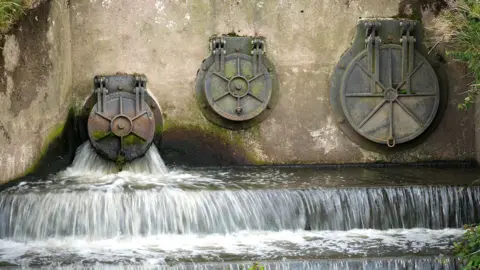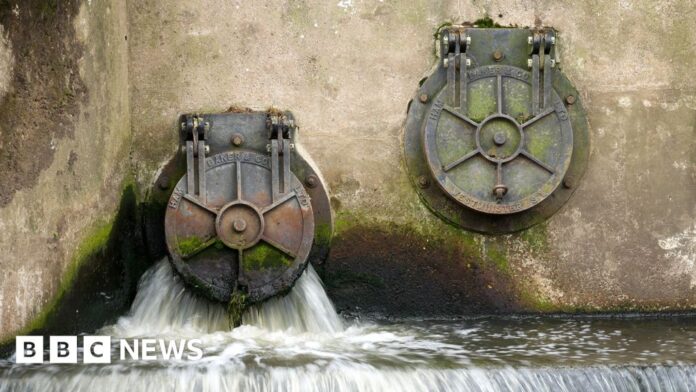Climate and science reporter, BBC News
 Christopher Furlong/Getty Images
Christopher Furlong/Getty ImagesSerious pollution incidents by water companies have risen 60% in a year, according to the Environment Agency.
In total there were 2,801 pollution incidents in England in 2024, the highest on record, compared with 2,174 in 2023.
Of these, 75 were considered to pose “serious or persistent” harm to fisheries, drinking water and human health – up from 47 last year.
The Public Accounts Committee – a cross party group of MPs – called the level of pollution “woeful”.
Industry group Water UK acknowledged that the performance of some companies had not been good enough.
The industry was set a target to reduce pollution incidents by 40% by 2025 against 2016 levels. But the levels reported in 2024 were nearly a 50% increase on the 2016 levels, and more than double the original EA target.
The data on incidents from the Environment Agency comes ahead of a landmark review of the water industry, to be published on Monday.
The chair, Sir John Cunliffe, will lay out his recommendations on how to improve the environmental and financial performance of the sector.
Every year the Environment Agency records the number of times pollution such as untreated sewage is released from water company sites such as treatment works into the country’s waterways.
Just three companies were responsible for the vast majority of the most serious incidents – Thames Water (33), Southern Water (15) and Yorkshire Water (13).
“These figures expose a brutal truth. Serious pollution incidents are rising, sewage discharges remain rampant, and our rivers are spiralling toward ecological collapse. This is not just regulatory failure; it is a national disgrace,” said River Action CEO James Wallace.
“Thames Water, the most egregious polluter, should be put into special administration to start the reset,” he added.
 Getty Images
Getty ImagesEngland has a combined sewage system which means both rainfall and sewage are processed through the same system. Last year, rainfall levels were up, which could have overwhelmed some water company infrastructure.
However, despite variations in rainfall, discharges that result in serious pollution are a breach of their permits and legal obligations.
Many incidents are reported to the Environment Agency by the companies themselves, but of the 4,000 inspections carried out last year by the regulator it found nearly a quarter of sites were in breach of their permits.
Sir Geoffrey Clifton-Brown, head of the Public Accounts Committee which has published its report into the sector, strongly criticised the government and Agency for not doing more.
“Regulators are overwhelmed by the number of prosecutions and appear unable to deter companies from acting unlawfully. Government must act now to strengthen regulators and support their efforts to hold companies to account,” he said.
The Committee said that the continued incidents are a result of the regulators – the Environment Agency and Ofwat – “fail[ing] to ensure water companies maintain vital infrastructure”.
It estimated that at current rates it would take companies 700 years to replace the entire water mains network.




